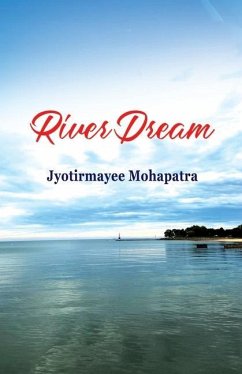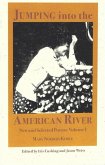This is not a critique of Jyotirmayee's poems which comprise this anthology. I will rather share with the readers my impressions the poems have created in me. I feel tempted first, to say a few words about two poems; "Gopal" and "Victory" which engaged my attention more than any other poem in the anthology did. I will try to say why. "Gopal "is about an uncomplaining old mother, whose son takes him to Kumbha Mela, not on a pilgrimage but consign her to its massive crowd and declare her untraceable and lost. She is conscious of the intrigue of her son and daughter-in-law for whom she is now a dispensable burden. But she makes it to the Mela not on a pilgrimage as she consoles herself to have the Supreme Gopal, Sri Krishna, as her emotional and spiritual replenishment. The mother, as always, through this sacrifice, becomes resplendent and pervasive. The world offers alternatives to cling to even when it appears to be a void with all possibilities non-existent. This sense of hope permeates most of her poems in this anthology. Jyotirmayee's anguish is evident as the spectacle of cruelty, hypocrisy, deception and rape etc. engulf values and block the path to the moral realm. This divinely ordained Mother Earth is battered and maimed by these evils, but ultimately these evils, gloom and frustration will be dissipated by the miraculous flute bringing bliss and ecstasy to the soul. This hope, I repeat, is echoed in several poems; there is an end to the present tunnel; there is always a promise of a green territory; birds chirping in gay abandon; bees collecting honey and above all, the gloom-dispelling tune of Sri Krishna's flute who is envisioned as the final saviour. Her conviction is rooted in the Indian philosophy of Time's cyclic order as hinted in the poem "River". The second poem I have in mind is "Victory". A seed accidentally dropped in an inhospitable place, sprouts. Green stem carrying pink flower symbolises the eternal flow of life. Unafraid of hostile condition, the plant in fact registers victory of life. This reiterates the poet's perception that this world is a divine domain where good will emerge victorious. Some of the poems are the poet's meditation as she leads a life of forced quarantine due to Covid-19. At one end such life is contrasted with the free movement of butterflies. Owing to despair, the world turns out to be godless, patients die in quarantine hospitals. The dignity of a corpse does not matter as it is distanced due to fear of the pandemic. The despair and hardship forced upon man by this deadly epidemic are real. Man must endure it as long as it is not eliminated. On the other hand, however, as the poet looks at it, this curse is a passing phenomenon. Finally, life will remain triumphant. Besides some of these, there are others based on current events which have national, racial, human and even feminist connotation. The tragedy at Galwan Valley, the murder of George Floyd by White police in Minneapolis, the death (call it murder) of a pregnant elephant that follows the fatal bombs masquerading as food and the protest of Kangana that a part of her house was demolished exemplify the above observations. Jyotirmayee's penchant for myth is another aspect in this anthology which arrests the reader's attention. Ganga, Mist and even Taapoi etc. are given poetic treatment in the mythic perspective. Myth as a part of cultural heritage is never obsolete. It retains its relevance and enriches thoughts through ages. The poetic statements are varied, characterized by simplicity and clarity. Jyotirmayee avoids intellectualizing or philosophizing her statement. Such ostentatious exercise has created enough mischief in the realm of contemporary poetry and has distanced poetry from the reader. Her poem reveals itself in an autonomous and effortless manner. * Ramachandra Behera
Hinweis: Dieser Artikel kann nur an eine deutsche Lieferadresse ausgeliefert werden.
Hinweis: Dieser Artikel kann nur an eine deutsche Lieferadresse ausgeliefert werden.








